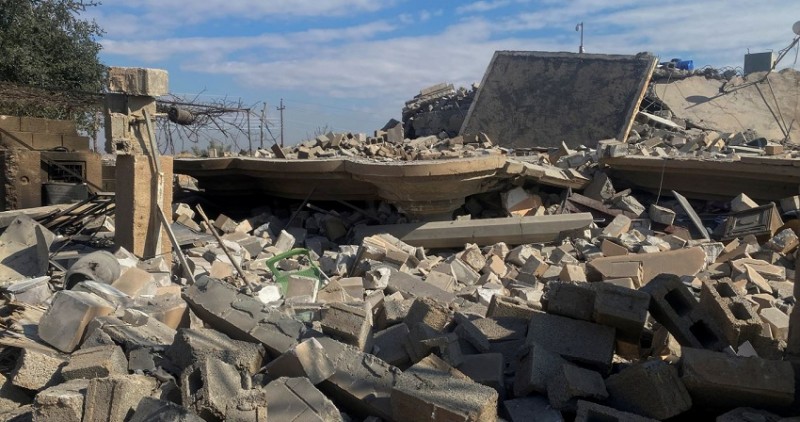
On Tuesday, July 30, the United States conducted an airstrike in Iraq, citing self-defense as the reason, according to U.S. officials. This development comes in the wake of heightened regional tensions following an Israeli airstrike in Beirut, which Israel claimed targeted and killed a top Hezbollah commander.
The strike, which took place at a base south of Baghdad used by Iraq's Popular Mobilization Forces (PMF), resulted in the deaths of four members of the group, known for its affiliation with Iran-aligned militias. Additionally, four other members were injured. Iraqi police and medical sources confirmed the casualties but did not assign blame for the attack.
U.S. officials, who requested anonymity, confirmed that the strike occurred in Musayib, Babil province, but did not provide specific details about the location. They indicated that the operation aimed at militants who were allegedly preparing to launch drones and posed a threat to U.S. and coalition forces. The officials did not comment on the number of casualties.
"This action reaffirms our commitment to safeguarding our personnel," stated one official.
The recent strike marks the first known U.S. military action in Iraq since February, when the U.S. targeted over 85 sites linked to Iran’s Revolutionary Guard and its affiliated militias in Iraq and Syria.
The Popular Mobilization Forces, comprising approximately 150,000 paramilitaries, is predominantly controlled by heavily armed groups with strong ties to Iran and its Revolutionary Guards. Iraq, which maintains a complex relationship with both the U.S. and Iran, hosts 2,500 U.S. troops and faces ongoing tit-for-tat attacks since the onset of the Israel-Hamas conflict in October.
Iraqi officials have expressed a desire for U.S.-led coalition forces to begin withdrawing by September, with a complete exit planned by September 2025. Some U.S. troops may remain under a new advisory role. The issue remains politically charged, with Iran-aligned Iraqi factions seeking to push out U.S. forces, while U.S. officials aim to counterbalance Iran's influence.
The U.S. invaded Iraq in 2003, deposed Saddam Hussein, and withdrew in 2011, only to return in 2014 to lead a coalition against ISIS.
Latest Updates:
Explosion Rocks Logistics Warehouses Near Baghdad
Hamas Leader Ismail Haniyeh Assassinated in Tehran: Reports
Israeli PM Netanyahu Promises Strong Response to Hezbollah After Fatal Rocket Attack on Children